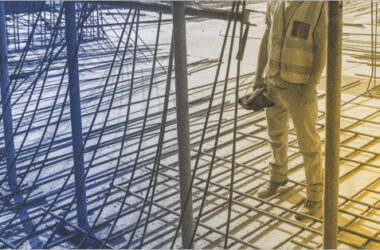Plant insurance is an important consideration for businesses that rely on machinery and equipment to operate. This type of insurance policy can provide coverage for damage to equipment caused by accidents, theft, or other unexpected events. In addition, plant insurance can also provide liability protection in the event of accidents or injuries that occur as a result of equipment malfunction or failure. In this blog, we will look into the complexities of plant insurance and how businesses can fortify their plant, machinery and equipment with this important safeguard.
Understanding Plant Insurance
Plant insurance is a type of insurance policy that covers the cost of damage or loss to machinery and equipment used in manufacturing plants, factories, and other industrial sectors. This type of insurance is essential for businesses that rely heavily on machinery and equipment to operate efficiently.
Why Do You Need Plant & Machinery Insurance?
This insurance policy provides comprehensive coverage for all damage or loss sustained by the insured’s machinery, including equipment such as cranes, bulldozers, compressors, and more. One of the key benefits of this policy is its inclusive nature, offering protection to the insured’s machinery regardless of whether they are operational, idle, or undergoing dismantling for maintenance purposes.
Key Coverages in Plant Insurance
Plant and machinery insurance in India typically provides coverage for a range of risks and perils that may affect the insured assets, such as industrial equipment and machinery. The coverage can vary among insurance providers, but generally includes protection against the following:
1.Accidental Damage: This is the most basic coverage, protecting against accidental physical damage to the insured machinery and equipment. It can include damage from events like fire, lightning, explosion, earthquake, and more.
2. Breakdown or Mechanical/Electrical Failure: Coverage may extend to sudden and unforeseen breakdowns, mechanical or electrical failures of the insured machinery. This includes damage resulting from internal defects, faulty materials, or workmanship.
3. External Perils: Insurance may cover damage caused by external perils such as flood, storm, cyclone, inundation, etc. These are events beyond the control of the machinery owner.
4. Burglary or Theft: Coverage can extend to theft or burglary of the insured machinery or equipment.
5. Transportation Risk: If the machinery needs to be transported, insurance may cover damage or loss that occurs during transit.
6. Temporary Removal: Some policies may cover machinery when it is temporarily removed from the insured premises for cleaning, repairs, or similar purposes.
7. Third-Party Liability: In some cases, the insurance may provide coverage for third-party liability arising from damage caused by the insured machinery to third-party property or persons.
It’s important to note that coverage specifics can vary, and policies may have exclusions or limitations. Additionally, businesses can often customize their coverage based on their specific needs and the types of machinery they own. As insurance policies and regulations may change, it’s advisable to consult with an insurance professional or the insurance provider directly to get the most up-to-date and accurate information tailored to your specific requirements.
Types of Plant Insurance
There are several types of plant insurance policies that businesses can choose from, depending on their specific needs. These include:
- Boiler and Pressure Plant Insurance – This type of insurance covers the cost of damage or loss caused by explosions, accidents, and other incidents involving boilers and pressure plants.
- Machinery Breakdown Insurance: Provides coverage for sudden and unforeseen physical damage to machinery due to mechanical or electrical breakdown, internal defects, and similar issues.
- Electronic Equipment Insurance: Specifically designed for electronic equipment, this policy covers damages caused by perils such as power surges, short circuits, and breakdowns.
- Contractor’s Plant and Machinery Insurance: Tailored for contractors, this policy covers the machinery and equipment used during construction projects against various risks.
- Storage-Cum-Erection Insurance: Designed for projects involving the storage and installation of machinery and equipment, covering them during both phases.
More on Boiler and Pressure Plant Insurance
Boiler and Pressure Plant Insurance is a type of insurance policy that covers damages caused by explosions or breakdowns of boilers and pressure vessels. It is designed to protect businesses that use boilers and pressure vessels, such as manufacturing plants, from financial losses due to unexpected accidents.
Coverage Specifics
Boiler and Pressure Plant Insurance typically covers the following:
- Damage to the boiler or pressure vessel
- Damage to surrounding property
- Business interruption losses
- Liability for bodily injury or property damage resulting from an explosion or breakdown
The policy may also cover the cost of inspection and maintenance of the boiler or pressure vessel.
Risk Management for businesses that use boilers and pressure vessels
To reduce the risk of accidents and breakdowns, businesses that use boilers and pressure vessels should implement proper risk management strategies. This includes regular inspections, maintenance, and training for employees who operate the equipment. Businesses should also ensure that their boilers and pressure vessels comply with the relevant safety regulations and standards. This can help prevent accidents and reduce the likelihood of costly insurance claims.
Obtaining a Plant Insurance Quote
When looking for plant insurance, it is essential to obtain a quote that accurately reflects the coverage you need. Here are some factors that influence plant insurance costs and how to compare plant insurance quotes.
A. Factors Influencing Plant Insurance Costs
Several factors can influence the cost of plant insurance. These factors include:
- Type of plant: The type of plant you own can impact the cost of insurance. For instance, a power plant may require more coverage than a manufacturing plant.
- Value of plant: The value of your plant and equipment can also affect the cost of insurance. The higher the value of your plant, the higher the insurance premium.
- Location: The location of your plant can also impact the cost of insurance. If your plant is located in an area prone to natural disasters or crime, your insurance premium may be higher.
- Safety record: Your plant’s safety record can also influence the cost of insurance. If your plant has a history of accidents or safety violations, your insurance premium may be higher.
B. How to Compare Plant Insurance Quotes
When comparing plant insurance quotes, it is essential to consider the following:
- Coverage: Make sure the coverage offered by each insurance provider is the same. Some providers may offer additional coverage that others don’t, which can impact the cost of insurance.
- Premiums: Compare the premiums offered by each provider. Make sure you are getting the coverage you need at a fair price.
- Deductibles: Check the deductibles offered by each provider. A higher deductible may mean a lower premium, but it also means you will pay more out of pocket if you need to make a claim.
- Reputation: Consider the reputation of each insurance provider. Look for reviews and ratings from other customers to help you make an informed decision.
By considering these factors and comparing quotes from different providers, you can find the right plant insurance coverage at a fair price.
Claims Process and Settlement
When it comes to making a claim on your plant insurance policy, the process can vary depending on the insurer and the nature of the claim. However, most insurers will have a straightforward claims process that is designed to be as simple and stress-free as possible.
The first step in making a claim is to notify your insurer as soon as possible. This can usually be done online or over the phone, and you will need to provide details of the incident, including the date and time, the cause of the damage, and any relevant documentation or evidence.
Once you have notified your insurer, they will assign a claims handler who will be responsible for managing your claim from start to finish. They will work with you to gather any additional information or evidence that is required, and will keep you updated on the progress of your claim. In most cases, your insurer will arrange for an independent assessor to visit your premises to assess the damage and provide a report. This report will be used to determine the extent of the damage and the cost of repairs or replacement.
Once your claim has been assessed, your insurer will provide you with a settlement offer. This offer will be based on the terms of your policy and the findings of the assessor’s report. If you are happy with the offer, you can accept it and your insurer will compensate you for the repairs or replacement to be carried out.
Overall, the claims process for plant insurance is designed to be simple and straightforward. By notifying your insurer as soon as possible and providing all the necessary information and evidence, you can ensure that your claim is processed quickly and efficiently.
Frequently Asked Questions
1. How is the premium for Plant and Machinery Insurance determined? The premium for plant and machinery insurance is determined based on several factors such as the value of the insured property, the type of machinery, and the level of risk associated with the business. The insurer may also consider the safety measures taken by the insured to prevent accidents and losses.
2. What are the common exclusions found in a Boiler and Pressure Plant Insurance Policy?
The common exclusions found in a boiler and pressure plant insurance policy may include the following:
- Wear and tear: The policy does not cover damage caused by normal wear and tear of the insured plant and machinery.
- Mechanical breakdown: The policy does not cover mechanical breakdown of the insured plant and machinery unless it is caused by an insured event.
- Consequential loss: The policy does not cover any consequential loss or damage resulting from the insured event.
- Acts of war or terrorism: The policy does not cover any loss or damage caused by acts of war or terrorism.
3. What steps should be taken in the event of a boiler or pressure plant incident to ensure insurance coverage?
In the event of a boiler or pressure plant incident, businesses should take immediate steps to ensure the safety of their employees and property. They should also report the incident to their insurer as soon as possible and provide all the necessary information and documentation to support their claim. Failure to report the incident promptly may result in a denial of coverage.








